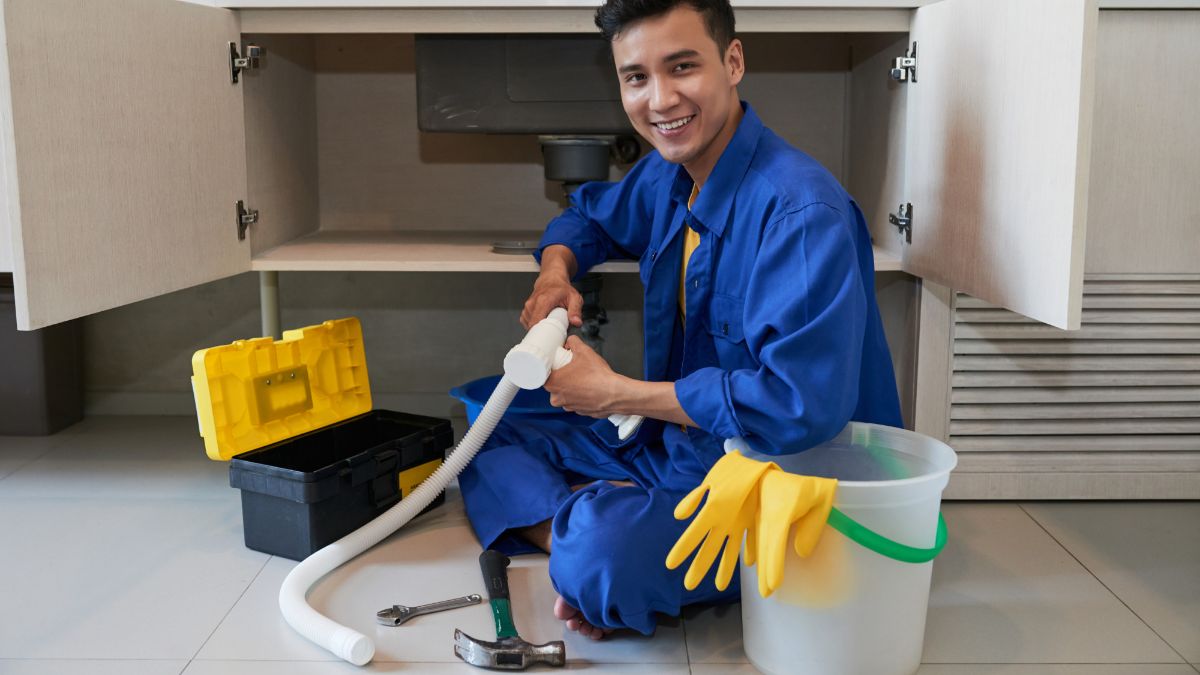
Plumbing emergencies can be a major pain. They can interfere with (or even completely disrupt) your daily operations and lead to costly repairs down the line. Whether it’s a burst pipe, a clogged drain, or a broken water heater, it’s important to be prepared and know how to properly deal with these situations in order to minimize damage and ensure safety of your employees.
In the following article, we’ll go over a few practical tips on how to properly handle plumbing emergency situations at work.
Have a proper contingency plan in place
Having a plan in place is important to get ready for a potential plumbing disaster. This plan should include a few essential components, such as
- list of emergency contacts (such as your plumber),
- location of your main shut-off valve.
- person who will be responsible for coordinating the emergency response.
The point person should be trained on how to properly shut off the main water supply. They should also be granted access to the building’s blueprints.
Having a plan in place is invaluable for minimizing water damage, preventing injuries and life loss, as well as ensuring that any future plumbing emergency situation is dealt with as quickly as possible.
Shut off the main water supply to the building
If you’re dealing with a burst pipe or a major leak, the first thing you should do is shut off the main water supply to your building. This is an important step that will help you prevent further damage and give you time to step back and calmly assess the situation.
If you’re not sure where your main shut-off valve is located, consult your building’s blueprints or, even better, contact your local plumber. Once the main water supply is shut off, turn off any electrical equipment that may come into contact with the water, such as water heaters or electrical panels.
Communicate with your employees and building administration
Once you’ve assessed the situation and taken all the necessary steps to avoid further damage, it’s time to reach out to your employees. Be honest and let everyone know what’s happening. Tell them what steps are being taken to deal with the situation and how it will impact their work.
If you need to evacuate the building or temporarily relocate your team, make sure to communicate that to your team so everyone is on the same page.
Don’t forget to reach out to building administration as well. Depending on the scope of the emergency, they may be required to take additional steps to ensure everyone’s safety. Keeping all parties in the loop will help you prevent confusion, eliminate panic, and ensure that everyone’s safe.
Call in the professionals ASAP
Although you can probably handle some minor repairs on your own, it’s always best to call in experienced professionals. A licensed plumber will have the experience and expertise to quickly assess the situation, make necessary repairs, and ensure that your plumbing system is back in top shape as soon as possible.
For example, if your company is located in Australia, you might call a licensed plumber in Sydney and keep them on speed dial. It’s always a good idea to establish and maintain a good relationship with your plumber. Why? When a new emergency occurs in the future (and it will), they will already be familiar with the specifics of your building’s plumbing system and they’ll be able to respond more quickly.
Document the situation with photos and videos
It’s important to keep a detailed record of what’s happened. Take photos and videos of the areas affected by the damage, and keep a detailed log: what happened, when it happened, and what steps were taken to address it.
This documentation will be helpful when dealing with insurance companies, and can also be used to prevent future emergencies by identifying areas that need attention. Also, it’s important to document any repairs or maintenance because doing so can help you avoid future plumbing emergencies. Regularly scheduled inspections and maintenance are also essential in identifying potential issues before they become emergencies.
Conduct regular maintenance to prevent future emergencies
Finally, after experiencing a plumbing emergency, it’s important to take steps to prevent future disasters. You can do that by establishing a regular maintenance schedule. Regularly scheduled and performed maintenance can help identify potential issues before they become emergencies. Some preventative measures you can take include:
- Regularly inspecting plumbing components, such as pipes, valves, and fixtures, for signs of wear and tear or damage.
- Cleaning drains and pipes to prevent clogs and backups.
- Insulating pipes to prevent freezing and bursting during the colder months.
- Regularly flushing water heaters to prevent sediment buildup and prolong their lifespan.
- Installing water alarms and automatic shut-off valves to detect leaks and prevent water damage.
By taking these preventative measures, you can minimize the risk of future emergencies, protect your property, and ensure that your plumbing system runs smoothly.
Wrapping up
Handling plumbing emergencies at work can be quite a stressful experience. Having a proper contingency plan in place and calling professionals to deal with the situation as soon as possible are absolutely essential.
We hope these tips will help you minimize damage and ensure that your workplace is safe and back to working order as soon as possible.




